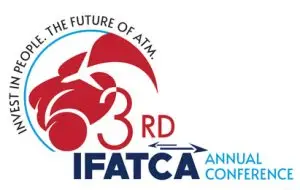PURPOSE
The International Federation of Air Traffic Controllers Associations (IFATCA) wants to provide an environment free from discrimination and harassment for all its members. All participants to any IFATCA activities, events or meetings should feel safe, respected and valued by all the other participants. IFATCA adopts the following Code of Conduct and expects its staff, its members, its leadership and any other IFATCA participants to abide by it.
DEFINITIONS
A. Discrimination
It is discrimination to make any decision or judgment based on another person’s race, ethnicity, religion, colour, sex, age, national origin, sexual orientation, disability, gender identity or expression, ancestry, pregnancy, or any other characteristic protected by applicable law.
B. Harassment
Harassment is unwelcome verbal, visual, or physical behaviour that is based on another person’s race, ethnicity, religion, colour, sex, age, national origin, sexual orientation, disability, gender identity or expression, ancestry, pregnancy, or any other characteristic protected by law.
It may include actions such as the use of name dropping, gossip, negative stereotyping and jokes. It may also be threatening, intimidating or hostile acts that relate to sex, race, age, disability, or other protected categories. Harassment may include written or graphic material that puts down or shows hostility toward an individual or group based on protected characteristics. The material could be sent by traditional or electronic means, or distributed through other means on the premises of an activity, event or meeting.
C. Sexual Harassment
Sexual harassment is unwelcome sexual advances or requests for sexual favours. It can also involve other verbal, visual, or physical behaviour of a sexual nature. It can involve inappropriate behaviour by a person of either gender toward a person of the same or opposite gender.
EXPECTED BEHAVIOUR
IFATCA expects its staff, its members, its leadership and any other participants at IFATCA activities, events, or meetings to:
- Respect others and their views
- Recognize and value individual differences
- Not engage in aggressive, bullying, or intimidating behaviour
- Not engage in discriminatory or harassing behaviour
UNACCEPTABLE BEHAVIOUR
This Code of Conduct is not intended to restrict free and open debate, but rather is concerned with preventing unacceptable behaviour, as detailed below. Unacceptable behaviour includes, but is not limited to, the following:
- Discriminatory or harassing speech or actions, including cyber-bullying or cyber- harassment, in the IFATCA workplace or at any IFATCA meeting or event, including all related activities and communication methods
- Harmful or offensive verbal or written comments or visual images related to race, ethnicity, religion, colour, sex, age, national origin, sexual orientation, disability, gender identity or expression, ancestry, pregnancy, or any other characteristic protected by law
- Inappropriate use of nudity and/or sexual images in work or public spaces
- Bullying or stalking
Harassing photography or recording - Uninvited sexual attention or contact
- Physical assault (including uninvited touching or groping)
Real or implied threat of physical harm - Knowingly making a false report under this Code is considered a violation of this Code.
STANDARD OPERATING PROCEDURES FOR IFATCA CODE OF CONDUCT REPORTS
Prior to the start of any large IFATCA event or meeting (e.g. regional meeting, Annual Conference, etc.), attendees will be provided with a copy of The IFATCA Code of Conduct. IFATCA expects all attendees to read, understand and fully comply with the IFATCA Code of Conduct.
At every meeting there will be a dedicated IFATCA team of officials to whom you can report any potential breach of the IFATCA Code of Conduct. If you experience or witness unacceptable behavior, please inform the designated officials, or any Executive Board member.
Once a report is received, it will be investigated and treated confidentially to the extent this is possible while properly assessing the situation. IFATCA will take all appropriate steps to ensure that the unacceptable behavior stops, help the person who have been subjected to unacceptable behavior and take steps to ensure retaliation does not occur.
All properly notified reports will be investigated thoroughly by two members of the dedicated IFATCA team of officials and one member of the IFATCA executive board. Their findings will be forwarded to the IFATCA executive board without delay.
IFATCA takes these complaints seriously and any individual engaged in discriminatory and/or harassing conduct will be subject to disciplinary action imposed by a majority vote of the Executive Board. Disciplinary actions may be, a verbal or written warning, a verbal or written advice over future conduct, exclusion from the current event or meeting, termination of IFATCA employment or prohibition from attending future IFATCA events.
IFATCA officials will help the complainant in any way necessary. In instances involving allegations of assault or other criminal activity, IFATCA shall advise the complainant to file a report with the appropriate local law enforcement agency but will not pressure complainant to file such report.
Reports of potential breaches of the IFATCA Code of Conduct can be submitted to: conduct@ifatca.org
